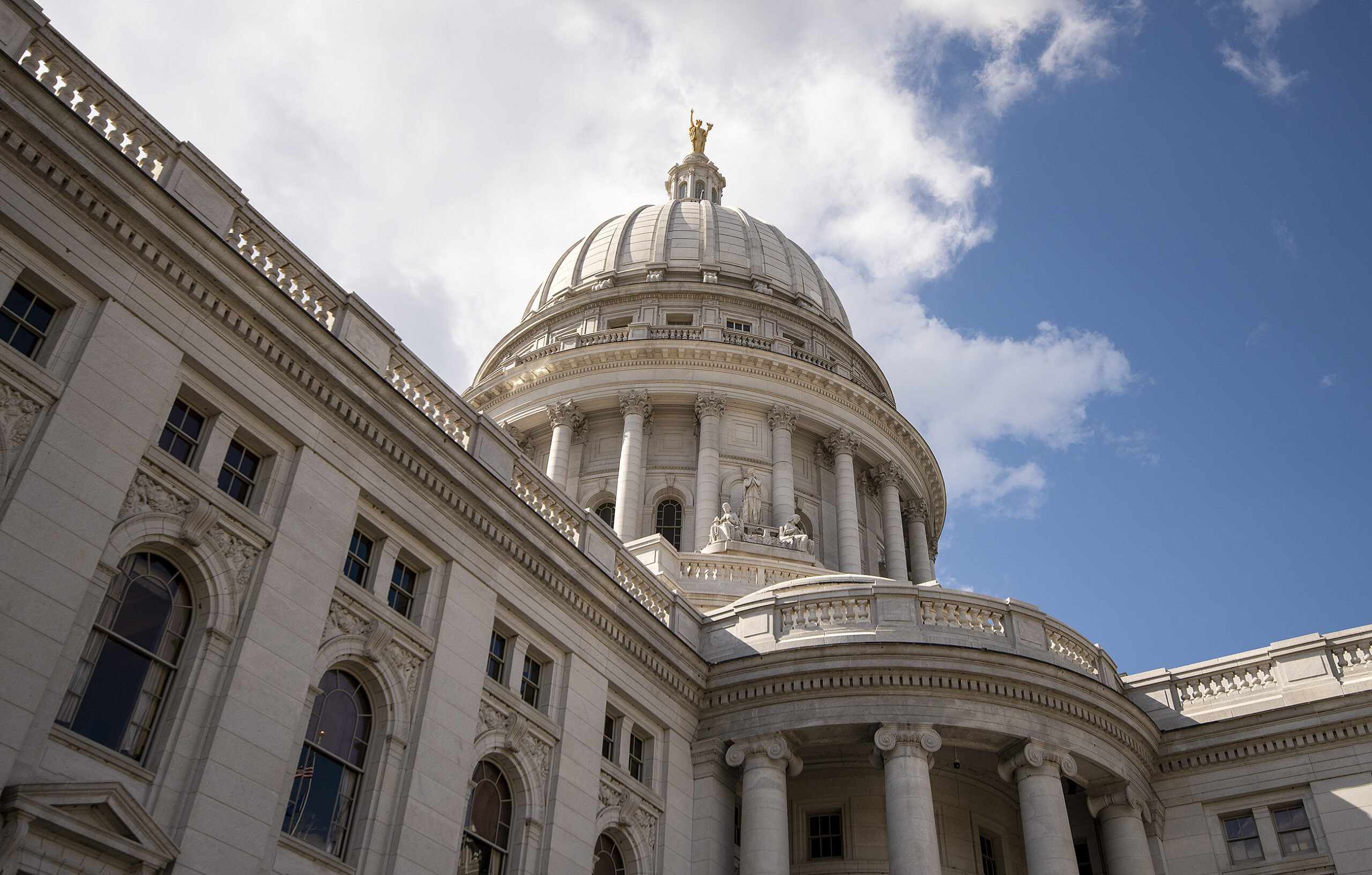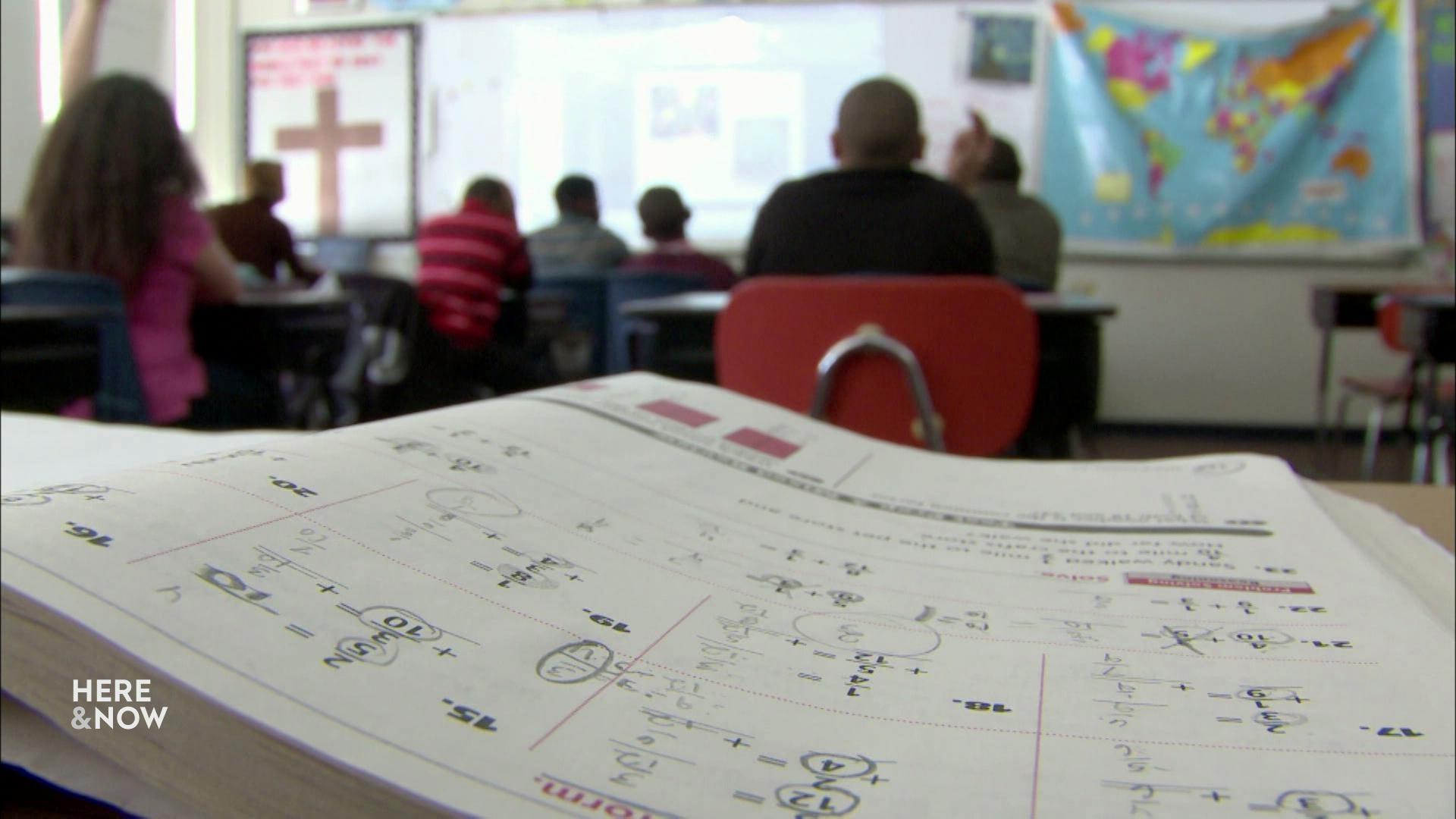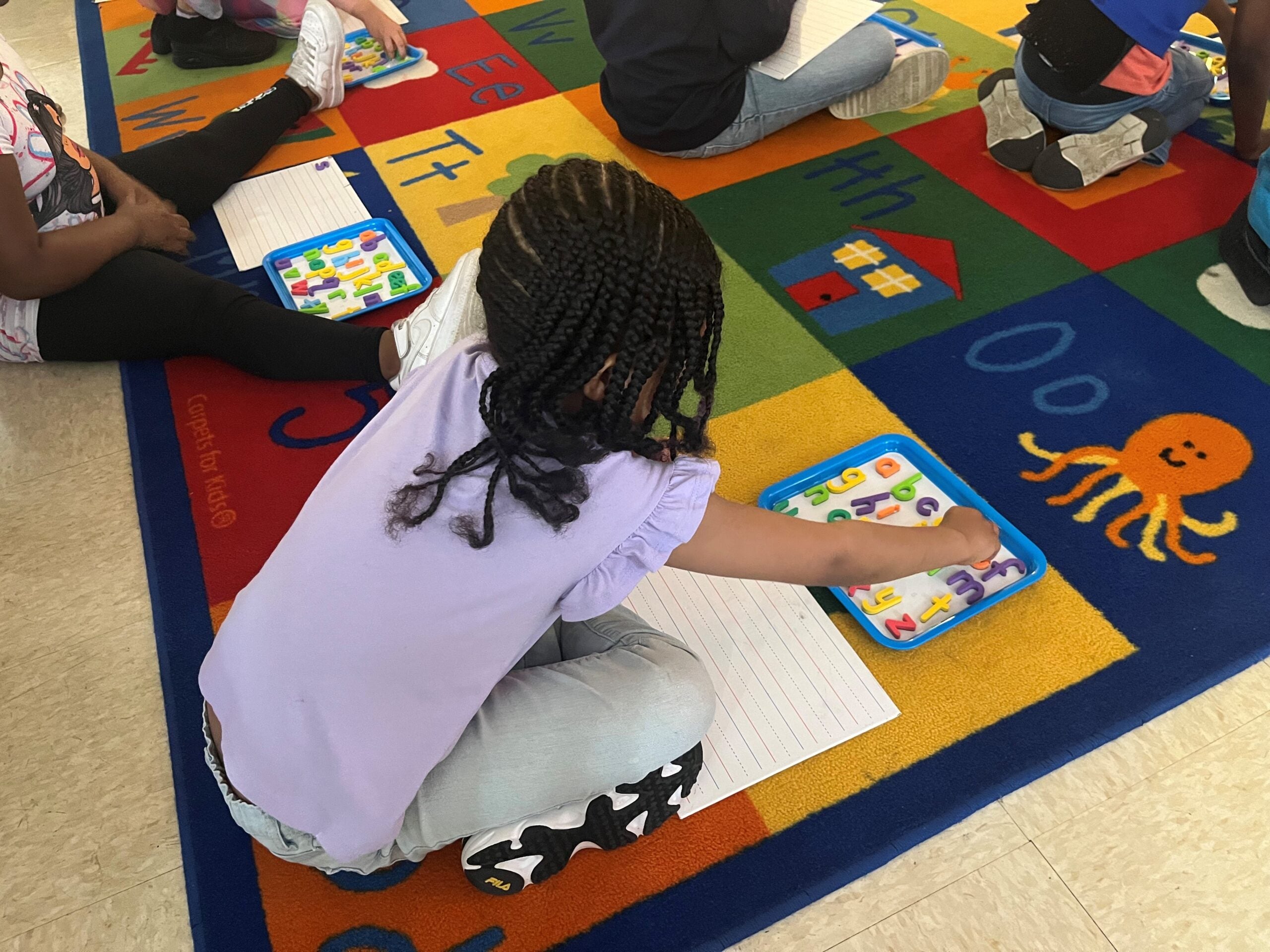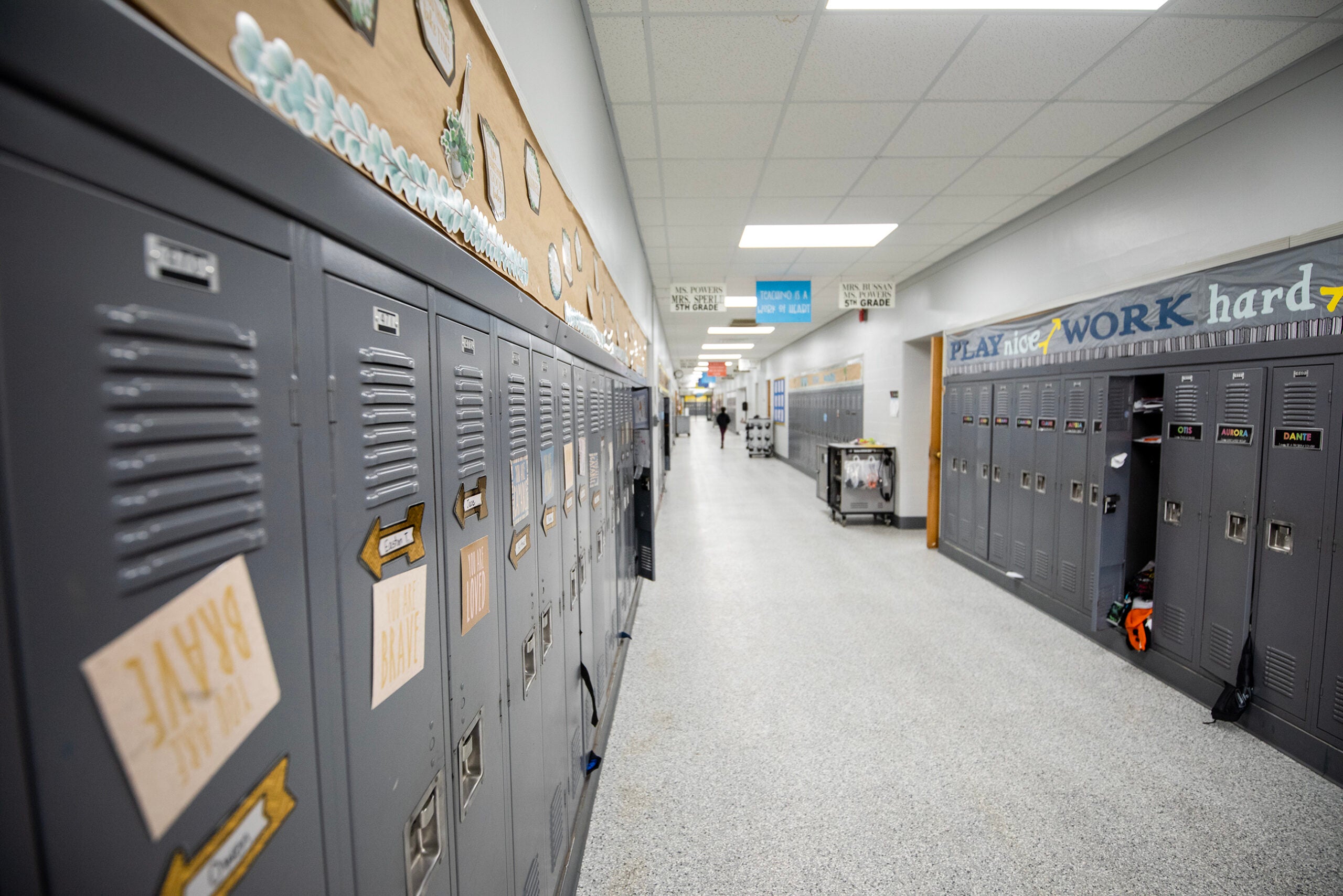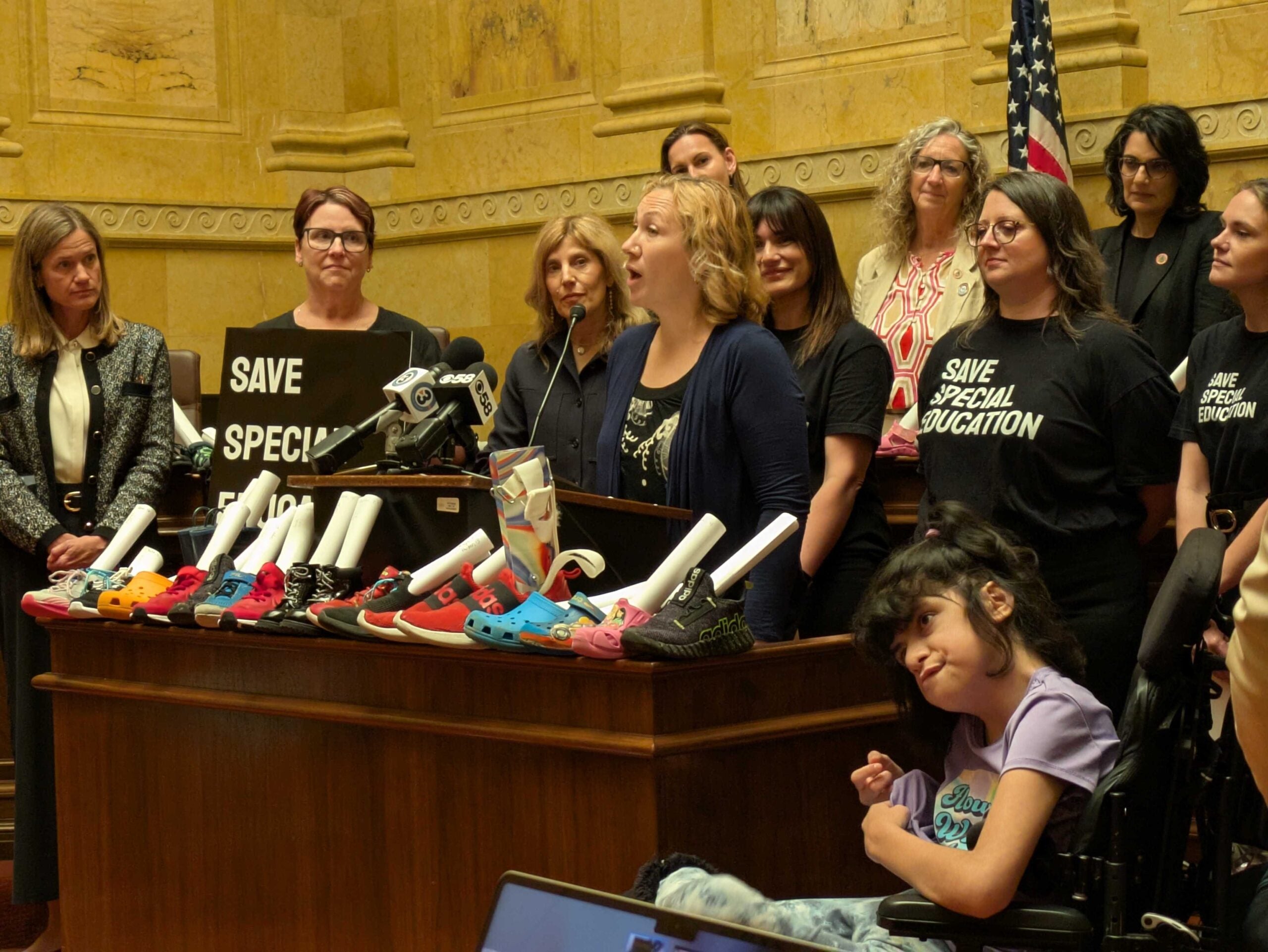School leaders and public education advocates around the state are pushing back against the proposed budget that the Wisconsin state assembly will vote on next week, which would keep school funding flat for the next two years.
The Republican lawmakers who drafted the bill pointed to the billions of dollars in federal relief funds that are earmarked for Wisconsin schools over the next several years. However, school superintendents, teachers and other district officials who rallied at the State Capitol Monday pointed out that those funds can only be used on certain expenses and run out after a set period — meaning they can’t support longer-term recurring costs like teacher and staff salaries, expanded mental health programming, or all the other needs schools anticipate coming out of a traumatic, disruptive year and a half of pandemic learning.
“Our students are facing serious social, emotional and mental health needs right now,” said Carlton Jenkins, superintendent of the Madison Metropolitan School District. “If this current budget goes through as-is, we will begin to have to make even tougher decisions in our school systems.”
News with a little more humanity
WPR’s “Wisconsin Today” newsletter keeps you connected to the state you love without feeling overwhelmed. No paywall. No agenda. No corporate filter.
Lawmakers resolved earlier concerns that their budget didn’t spend enough on schools to meet the minimum spending threshold for Wisconsin to draw down all the federal relief funds — jeopardizing some $2.3 billion — by lowering the share of school funding to be paid by property taxes and replacing that with money from the state general fund. The budget that will go before the Assembly meets the “maintenance of effort” requirement to receive the last two rounds of federal funding for schools, but doesn’t get districts any new state money.
It also doesn’t include increases for bilingual-bicultural aid, which hasn’t been raised since 2007, or special education aid, which currently only covers about 30 percent of the actual costs districts incur for special education programming.
“One of the things that’s most frustrating about the proposal is that it does very little to address these really pernicious, ongoing funding inequities in special education and with our English language learner population,” Stephen Murley, superintendent of Green Bay Area Public Schools, told WPR. “Wisconsin should not be proud that we are 49th in the country in providing support for students who receive special education, we should not be proud as a state that our English language learners are not provided the fiscal support that districts all over the state need to make sure that those students are indeed proficient in English.”
Increases in special education and bilingual education funding also came up at the Madison rally. Dave Hoekstra, a board member and treasurer of the Sun Prairie School District, highlighted cost-of-living increases for teachers and staff and special education as two areas where his district needed more funds from the state, that federal relief funds wouldn’t cover.
“I’m a conservative, I support tax cuts, I support limited spending, but I also understand our budget at the Sun Prairie School District, I understand school funding very well,” he said. “School districts need to be able to fund inflationary additional expenses in their budgets.”
Without an increase in the amount schools can raise through a combination of state funds and property taxes, students and administrators said schools will have to cut even further into their existing budgets. Whitman Bottari, a rising senior at Madison East High School, said that’s hard to see after the decade of cuts and tough choices she’s seen since attending Act 10 protests when she was 7.
“My class sizes have gotten bigger, my teachers have been forced to spend more of their own money on supplies, and the achievement gap that should have been closed years ago remains a lingering crisis,” she said. “COVID hit the schools hard, and the Legislature didn’t give enough support.”
Despite early concerns that the state would face a budget shortfall this year, projections indicate Wisconsin will have a $5.9 billion ending balance after the next biennial budget, which Bottari sees as an opportunity to invest more in schools, and students.
“It’s not enough to go back to how things were before COVID hit,” she said. “We have an opening to fully fund public education in Wisconsin.”
Carol Carstensen, a former member of the MMSD school board and current member of Grandparents United for Madison Public Schools, said lawmakers can still provide a tax cut.
“There is enough money available to fund an increase in public school funding and, if they must, give some property tax relief,” she said. “Let me repeat — we have enough state revenue to do both, so as citizens of this state, we have to let the legislators know that we demand more and better.”
The amount the Republican plan budgeted for schools is far below Gov. Tony Evers’ proposed budget, which called for $1.6 billion for schools, including increases in both state special education funding and bilingual-bicultural aid.
Gina Pagel, a Spanish and social studies teacher in Waunakee, said schools will have to rebuild students’ relationships with each other and with their education after a disruptive year, and will return to serving as community hubs — while likely “building back even better” by taking on even more responsibilities to meet students’ and communities’ mental health, social and other needs.
“It’s a fallacy that federal funding for COVID needs will be all we need,” she said. “To offer no new state aid in the coming two-year budget is a slap in the face to all those who dedicated their every waking minute to serve young people, and to our students, who deserve the best that our state has to offer.”
Wisconsin Public Radio, © Copyright 2026, Board of Regents of the University of Wisconsin System and Wisconsin Educational Communications Board.

